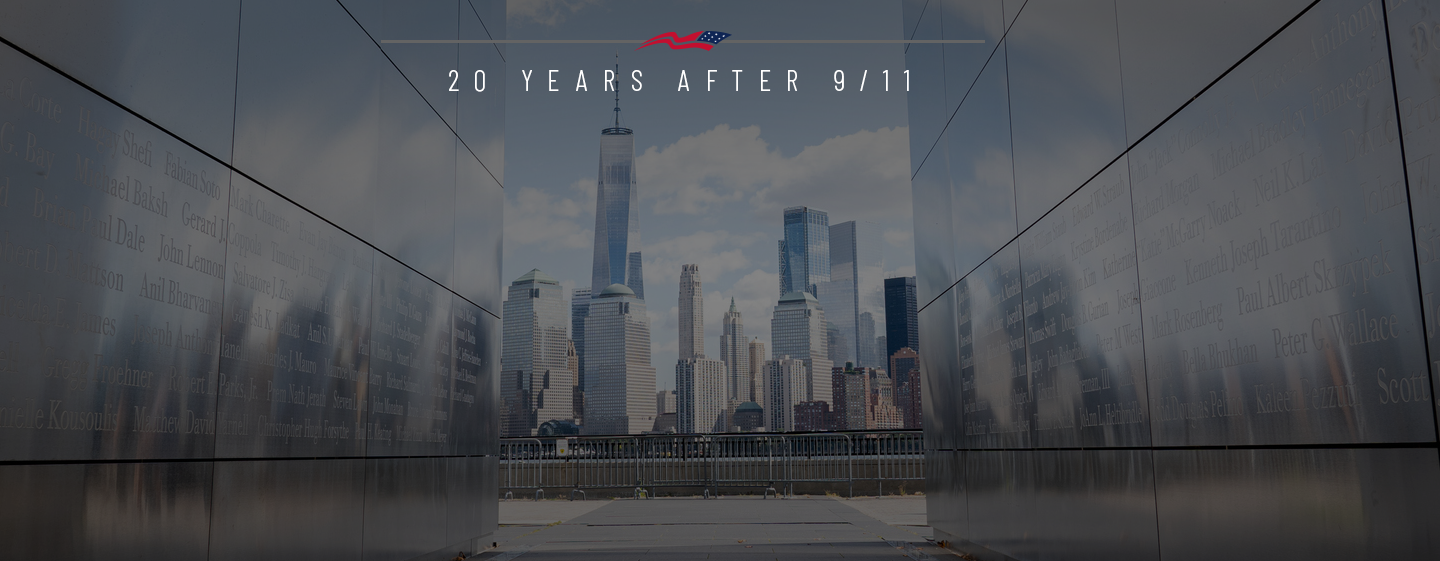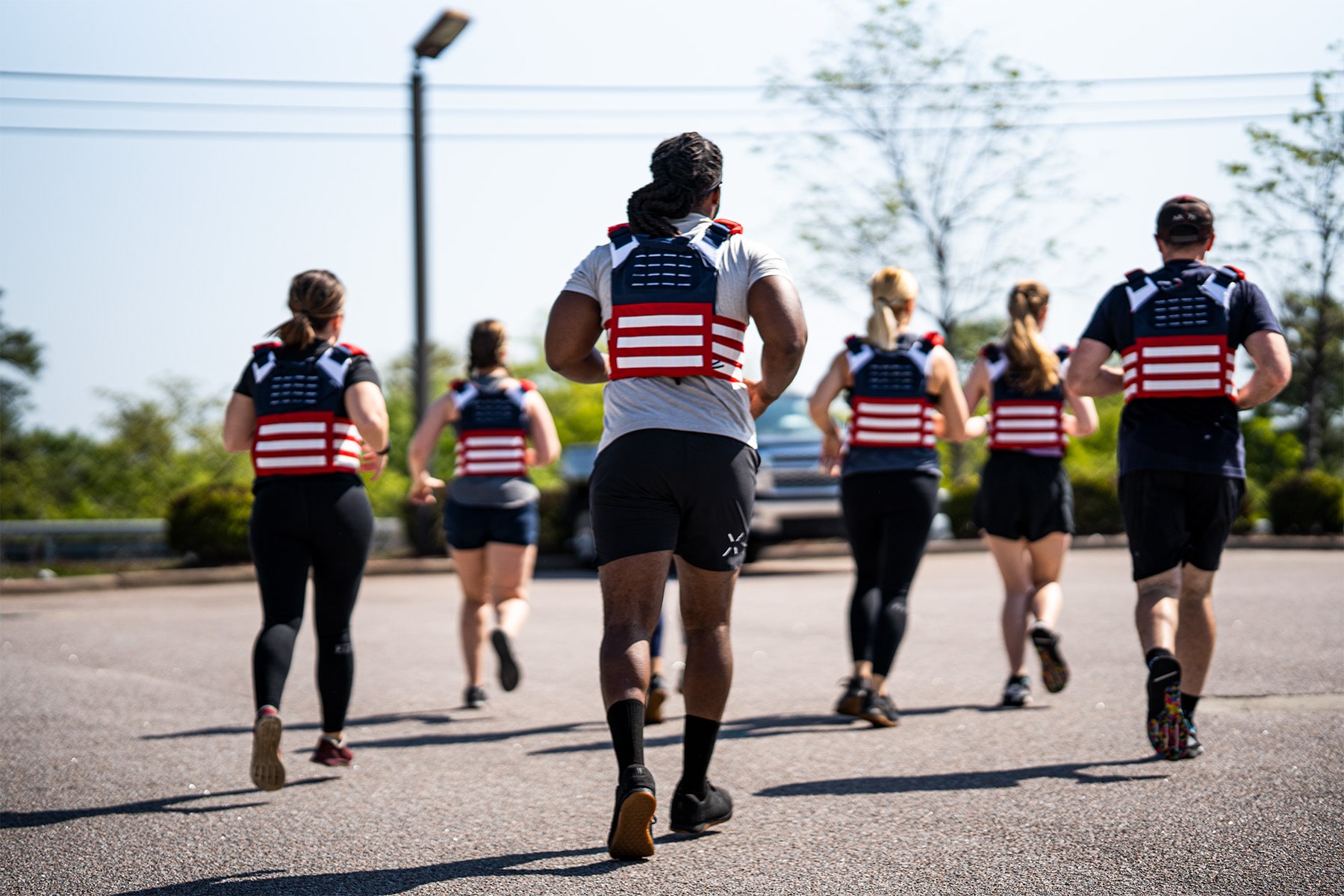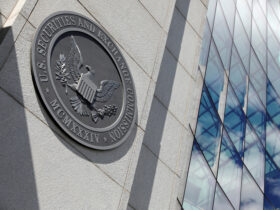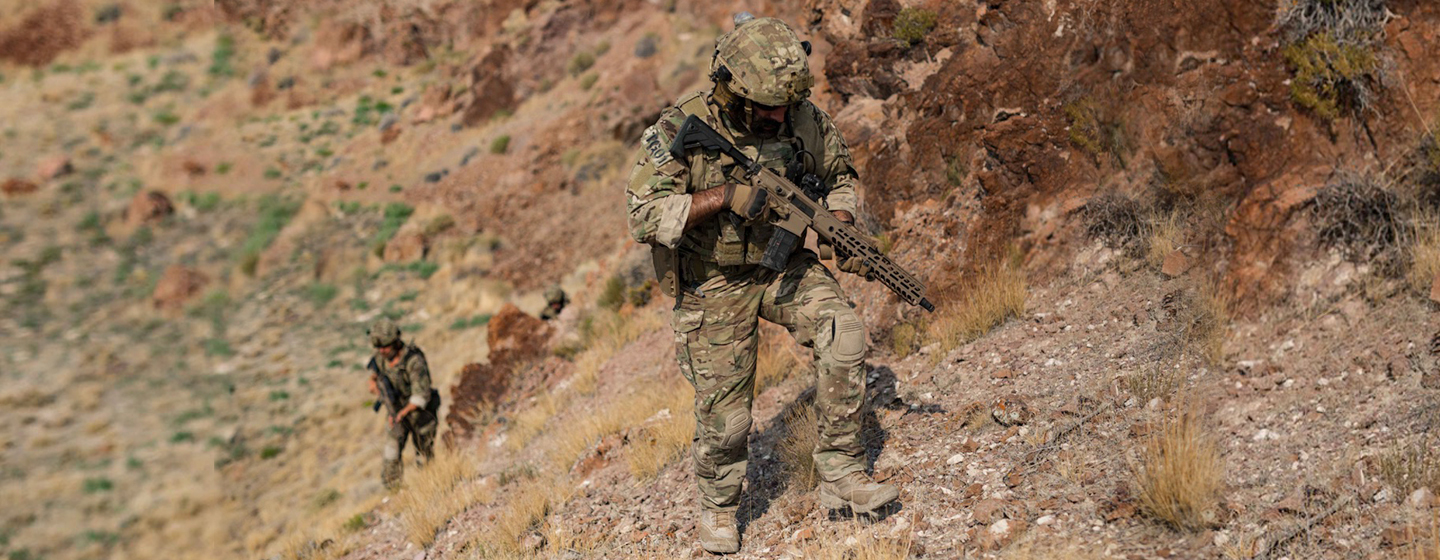It’s been 20 years since the fateful events of September 11th. 20 years since we were all exposed to the birth of round-the-clock news coverage, with tickers releasing names of missing Americans across the bottom of our televisions. 20 years since we heard “Terrorist attacks can shake the foundations of our biggest buildings, but they cannot touch the foundation of America.” 20 years since 9/11.
20 long, taxing years.
What have we learned? Where have we landed? Has the patriotism of September 12th disappeared? This article isn’t going to be a requiem on the politics that fueled the events leading up to, during, and after the attacks. It’s not going to recount minute-by-minute the events of the day. The purpose of this piece is simply to reflect on an event that altered the course of history, and contemplate where we have landed present-day.
September 11, 2001
Rather than recounting the day’s events, let’s look at the day in its entirety. It’s easy to see what actions burn this day into the history of America, let alone the rest of the world, but what came from it? Everyone old enough to remember 9/11 has their own story. For some it was crowding around radios at people’s desks, as the Emergency Alert System broadcasted nationwide. For those of us in school at the time, it was crowding around TV carts and looking to our teachers for information. A lot of Americans were stuck in airports, as they each locked down over the course of half an hour. Cell towers were overloaded and crashing. Information was abundant but reason was in short supply. One commonality seemed to be consistent across America: silence. Since our birth, America has been a noisy nation. We dominate international media and are often the trendsetters for how other countries alter their broadcast and technology standards, but on September 11th the overwhelming majority of talking heads, radio personalities, local news affiliates, and even politicians followed any way they could in complete awe. Americans everywhere were confused, hurt, and bewildered that such events could happen in (then) modern-day America. One can be sure that memories of the attack on Pearl Harbor flooded the minds of the Greatest Generation as the bleak events unfolded.
Looking back, it’s easy for any of us to say that, as a nation, we should have done this or that proactively to keep terrorist attacks like 9/11 from happening. I think we can all relate to the rollercoaster of emotions we experienced that day, especially when live national coverage picked up the second tower being hit. From that moment on, we knew this wasn’t an accident. When the Pentagon was hit, every American felt a cold chill run down their spine.
What came of it?
We could go down the list of precautions that entire generations have grown up with as standard practices in America now, such as increased security at all airports and border checkpoints. The ways in which we onboard immigrants and all of the background checks involved have dramatically changed in the 20 years since 9/11. The Freedom of Information Act changed our lives and the way our government regulates our freedoms. Proactive approaches to scouring reported social posts & videos of possible terrorists and deep-dives on problematic individuals are accepted as normal today. Those are just high-level changes made by the government, but what about citizens and our daily lives? How are those continuously affected by September 11th, 2001?
The way we ingest news and media coverage, today, is a direct result of September11th coverage. Though the 80s and 90s had given way to 24-hour coverage of national news events (missing persons, presidential impeachment hearings, and Bronco chases that led to “The Trial of the Century”), 9/11 unleashed a completely different beast on America: binge watching. Binging television didn’t start with Netflix, it started with 9/11. As news stations interrupted their regularly-scheduled programming and cut to disheveled news anchors attempting to play catch up on events unfolding, a crazy phenomenon took hold that hasn’t been seen since. TV stations started consolidating their broadcasts down to their parent station, so if you were watching music videos on MTV you immediately took a hard shift from watching Blink 182 sing about Girls at Rock Shows to Dan Rather trying to make sense of the World Trade Center crumbling in the streets of New York. Baseball, Basketball, Football, and every sport in America came to a grinding halt as everyone… EVERYONE tuned in to watch the news. There were primarily three options to get you through the events of September 11th: Tom Brokaw on NBC News, Peter Jennings on ABC News, and Dan Rather on CBS. FOX News, CNN, MSNBC, and the others all had their part to play, but outside of those networks you were watching one of the “Big 3”. Reports flew in from across the country of suspected and/or thwarted terrorist attempts. For those too young to remember, the rest of us will tell you what a terrifying moment it was to hear the Pentagon being attacked, a plane nose-diving in a Pennsylvanian grass patch, and hearing that there were intents to take the White House.
The way these news agencies chose to combat the growing number of missing persons being reported, airport closures, and general hysteria was simple: a news ticker. Something so many of us have grown up with now, became the gold standard for news broadcasting on September 11th. The way sports fans keep up with scores on ESPN, the streamlined interface that stocks are reflected on our smart phones, and even the way kids find about school closures these days all stem from that fateful day 20 years ago. 24-hour news channels had a foothold on American television, but after 9/11 they took off at an unprecedented rate. Today nearly every national news agency has its own dedicated cable channels, as well as a bevy of streaming offers (if they don’t outright have their own app).
These are all examples of modern-day touch points that were drastically altered by September 11, 2001. It’s not a complete list, not by a long shot, but it does represent how standards of today stem directly from the attacks on 9/11.
Afghanistan
There’s nothing that we’re going to be able to tell you that you don’t already know about the situation in Afghanistan. President George W. Bush delivered his message that night and everyone knew what the future held. Sort of. No one would have expected a campaign that would span 20 years, involving nation building, and America’s military paying the ultimate price many times over, but we did all agree on one thing: Osama Bin Laden was on borrowed time starting on September 12th. Unfortunately it would take another 10 years to square up his debt, but on May 2nd, 2011 his time had come. There are a variety of movies and shows that have tried to capture the frustration and bureaucracy involved in taking down al-Qaeda leadership, but they all end the same way. Osama bin Laden was ultimately taken out, and President Barack Obama delivered a late-night address informing the American people that bin Laden’s bill had come due and a Navy SEALs team had collected the tab. The Outpost, Zero Dark Thirty, Lone Survivor, 12 Strong, and hundreds of other movies & series dominated American media in the two decades since 9/11. Hell, even the Marvel Cinematic Universe got its start in the caves of Afghanistan. Don’t forget, Iron Man started ringing in the billion dollar movies for Disney with an RPG explosion, Tony Stark abduction, and an all-too-familiar ransom video that was clearly taken right out of what was modern day Afghanistan.
Operation Enduring Freedom
20 Years and $150 Billion Dollars bought America one of its longest and most taxing wars in the history of our nation. A campaign that originated in Afghanistan would ultimately span a litany of countries and spin-off multiple subordinate operations, Operation Enduring Freedom began on October 7, 2001 and ultimately came to a close, formally, on December 31, 2014. Although OEF would ultimately give way to Operation Freedom’s Sentinel, both non-combat and combative theater, this entire venture would ultimately lead to a tangled mess of Middle Eastern and Western relations. Throughout the course of OEF, Afghanistan took over 115,000 casualties, America would lose over 2,500 of its finest soldiers, and our allies suffered losses as well. The real toll would come in the years after the OP had commenced. Thousands of American soldiers returned home from overseas changed men & women. One study yielded that 13.5% of America’s military veterans that came home from Afghanistan fought the battle with PTSD. While fighting concurrent initiatives in both Operation Enduring Freedom and Operation Iraqi Freedom, America was ill-prepared for its strongest warriors to return and rely on the home front as much as America was depending on its soldiers to keep the terrorist threat at bay. Countless nonprofits and charitable organizations sprouted up nationwide to help combat PTSD and the effects it had on America’s returning fighting force and their families. This would be an effort that would mimic the actions of other Americans wondering why we were unprepared to take care of the first responders that took part in the rescue and restoration efforts in New York on 9/11. America was pressing an incredible offense on merged al-Qaeda and Taliban fronts in Afghanistan, but the toll was heavy and the nation was struggling to keep up with the pace of the affected.
It would take years, but eventually Afghanistan had seemingly tethered most of its cities free of terrorist rule thanks to American efforts. Women and girls were finding options and rights in their lives that had never been known. Schools, hospitals, and government facilities started to gain momentum and were being manufactured across the country. Terrorists hadn’t quit, but they had been beaten back. They would make sure that we were constantly reminded of their presence with random acts of terror, directed at both America and Afghanistan. Suicide bombings, RPGs, and roadside explosives continued but were contained to the fringes of Afghan daily life.
2021
Regardless of how we got here, be it the current or previous administration(s), it was clear that the Taliban had a plan. As America began bringing its troops home, the Taliban were lying in wait. The moment it seemed as though the country were ripe for the taking, they moved in. Quickly. Years of recruiting and training an Afghanistan defense fell faster than anyone could have predicted. Culminating in a series of events that are difficult to stomach, even given the bloody history of the Afghanistan campaign. Images of aircraft taking off with trails of Afghan citizens clinging to its landing gear are freshly imprinted in our minds and will forever be burned into the pages of history. The lives of 13 marines lost leaves such a poor taste in everyone’s mouth, that saying it’s bitter doesn’t begin to cover the feeling. The Department of Defense did release the names of the 13 fallen Marines:
- Marine Corps Staff Sgt. Darin T. Hoover, 31, of Salt Lake City, Utah.
- Marine Corps Sgt. Johanny Rosario Pichardo, 25, of Lawrence, Massachusetts.
- Marine Corps Sgt. Nicole L. Gee, 23, of Sacramento, California.
- Marine Corps Cpl. Hunter Lopez, 22, of Indio, California.
- Marine Corps Cpl. Daegan W. Page, 23, of Omaha, Nebraska.
- Marine Corps Cpl. Humberto A. Sanchez, 22, of Logansport, Indiana.
- Marine Corps Lance Cpl. David L. Espinoza, 20, of Rio Bravo, Texas.
- Marine Corps Lance Cpl. Jared M. Schmitz, 20, of St. Charles, Missouri.
- Marine Corps Lance Cpl. Rylee J. McCollum, 20, of Jackson, Wyoming.
- Marine Corps Lance Cpl. Dylan R. Merola, 20, of Rancho Cucamonga, California.
- Marine Corps Lance Cpl. Kareem M. Nikoui, 20, of Norco, California.
- Navy Hospitalman Maxton W. Soviak, 22, of Berlin Heights, Ohio.
- Army Staff Sgt. Ryan C. Knauss, 23, of Corryton, Tennessee.
In the weeks leading up to the 20th Anniversary of 9/11, once again sports stadiums have left vacant seats with makeshift battle crosses in honor, restaurants and businesses have blocked off tables or parking spaces with American flags in their memory, Service men and women that fought to protect America and helped build infrastructure & relations in Afghanistan have been incredibly vocal about the hurt they’re experiencing, and the media has had a field day using these events as a distraction from a worsening pandemic.
So what’s changed in the 20 years since 9/11?
At the end of the day, America is wildly different than it was 20 years ago. A lot of our daily lives have been directly impacted and forever changed by September 11th. We’ve seen an outpouring of people in the public eye give their opinions, and in some cases take the fight to the government for what they feel is the most correct path for our country. Comedian and Actor Pete Davidson has surely had his issues in the public eye over the past few years, but he has been very candid about a lot of his demeanor stemming from losing his father as one of the first firefighters to respond on the scene from Staten Island. John Stewart has been a champion for decades in trying to do his part in achieving and maintaining medical attention to first responders that have lived a challenging life with the physical remnants of that day affecting their ability to live and breathe… if they lived at all. If you haven’t watched some of the chilling testimony that our first responders have given in the halls of Congress over the years, I’d highly suggest giving that a view the next time you have a few minutes. Average individuals helped start nonprofits geared towards helping our service men and women. Everything from the publicly-touted Wounded Warrior Project down to ground-level initiatives, like trying to provide some manner of housing for the growing homeless veteran population. The #22ADAY movement, aimed at curbing and eliminating the suicide rate of veterans, has gained an immense amount of media coverage. Veteran-owned businesses have caught on like wildfire in this new digital age, with the overwhelming majority of them working to give back to the Military community in some way. There are an endless amount of nonprofits aimed at relocating and caring for domestic pets in America, that started with the thousands of dogs running the streets of New York 20 years ago.
A while back, my father-in-law, a veteran, asked me what I thought about the fact that his grandchildren were growing up in a world where none of their classmates would truly understand how the world was changed by the events of September 11th. At the time, I believe I gave him an intoxicated passive aggressive response (Hey-I’d argue that razzing your in-laws is as American as apple pie). Looking back on it, though, I’d say that his question isn’t an accurate thing to ask at all. Regardless if the upcoming generations realize it or not, the very fabric of American society is woven in the remembrance and reflection of September 11th. It can be as elaborate as news coverage or as simple as the plastic see-through bag you’re now required to use attending any football game. It can range anywhere from the way telecom companies handle massive influxes of traffic on networks, all the way up to a breath-taking dual-beam display in the heart of New York City.
What was your September 11th experience? What are your thoughts on Afghanistan? What significant changes did we miss in the article? What’s changed for you in the past 20 years, that you can pinpoint towards 9/11? Let us hear it in the comments below, and make sure to subscribe & follow! You can also find us online at USPatriot.com!
Source link: https://blog.uspatriottactical.com/20-years-since-9-11/ by US Patriot at blog.uspatriottactical.com





















